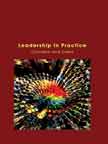Cocoberry: A Startup's Global Ambitions
|
|
ICMR HOME | Case Studies Collection
To download Cocoberry: A Startup's Global Ambitions case study
(Case Code: LDEN078) click on the button below

»
Leadership and Entrepreneurship Case Studies
» Short Case Studies
» View Detailed Pricing Info
» How To Order This Case
» Business Case Studies
» Case Studies by Area
» Case Studies by Industry
» Case Studies by Company
Please note:
This case study was compiled from published sources, and is intended to be used as a basis for class discussion. It is not intended to illustrate either effective or ineffective handling of a management situation. Nor is it a primary information source.
Chat with us

Please leave your feedback

|




Case Details:
|
Price: |
| Case Code |
: |
LDEN078 |
For delivery in electronic format: Rs.
500;
For delivery through courier (within India): Rs. 500 + Shipping & Handling Charges extraThemes
Entrepreneurship /
Internationalization
|
| Case Length |
: |
12 Pages |
| Period |
: |
2009-2011 |
| Pub Date |
: |
2012 |
| Teaching Note |
: |
Available |
| Organization |
: |
Cocoberry |
| Industry |
: |
Retail |
| Countries |
: |
India |
Abstract:
|
In July 2011, G.S. Bhalla (Bhalla), the CEO of Cocoberry, India's largest yogurt chain India was contemplating to enter international markets to realize his aggressive growth plans. Bhalla started the yogurt chain after realizing the potential for frozen desserts in the Indian market. Cocoberry was mostly promoted through low cost marketing communication tools like word of mouth and publicity. Cocoberry extensively used social-media for promoting its brand and products. Cocoberry's success attracted competition as some foreign yogurt chains started entering the Indian market. These foreign yogurt chains had more experience in the frozen yogurt business and had plans for speedy expansion in the Indian market. To expand its presence, Cocoberry also faced the challenge of convincing more Indian customers to buy frozen yogurt by paying a premium price.
|

|
Unlike the western customers, Indians had the habit of preparing yogurt in their homes for centuries. After the initial success, Bhalla had the plans of entering the international markets to fulfil his expansion dreams. Cocoberry wanted to leverage its experience in serving to customers in different states with diverse tastes. Should a start-up with limited experience start exploring foreign markets? Which markets should it enter and to what extent Cocoberry would be operationally involved, and what should be the degree of resource commitment to a particular market? From where would the additional capital be raised? Given the enormous opportunities in the domestic front and the associated challenges in tapping these opportunities, should it set its sight at international shores? This case is intended for use in under-graduate and post-graduate level management programs as part of Entrepreneurship course. It can also be used as part of Marketing Management course.
Issues:
Understand the entrepreneurial strategies that are to be followed by a new firm in a virgin market.
Discuss the expansion strategies that are to be followed by a new venture
Understand the importance of marketing mix in the success of the marketing strategy of an organization.
Appreciate the importance of debt financing and private placement in new venture financing.
Evaluate the need and circumstances in which a new firm needs to expand globally.
Examine the international market strategies to be adopted by a firm with limited experience and scarce financial resources.
Contents:
Keywords:
Entrepreneurship, Entrepreneurial strategies, Internationalization, Marketing, Venture financing, Market communication tools, Publicity, Social media, Word-of-mouth, Educating customers, Franchisee model, Innovation, Competition, Frozen yogurt business, Retail, Cocoberry, Nestlé, Kiwi Kiss, Danone, Mother Dairy
Introduction
- Next Page >>

|
|







